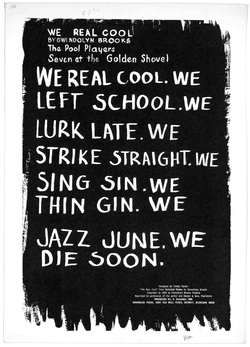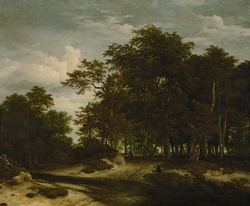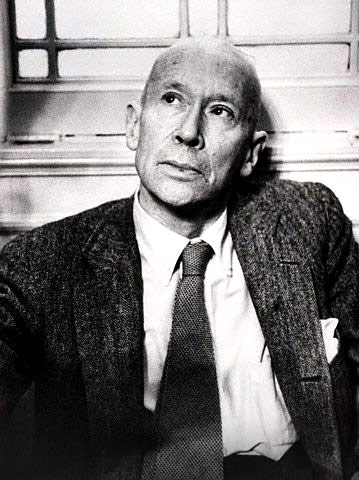My poem won’t copy and paste into the document correctly, so here’s
a link:
http://www.poets.org/viewmedia.php/prmMID/15403 The poem that I chose is “anyone lived in a pretty how town” by E.E.
Cummings (Cummings often didn’t use punctuation or capitalization, thus the
uncapitalized title- he actually would have preferred I type his name as ee
cummings!). I think that this is
a narrative poem since it’s talking about the story of a person, apparently
named“Anyone”, from a third-person point of view.
One of the biggest pieces of imagery that stuck out to me was how lines
like “spring summer autumn winter” and “sun moon stars rain” show the passage
of time- nature progresses regardless of what we do.
I’m also a fan of Cummings’ abstract form of writing.
It makes you look deeper in the poem to find meaning.
For some reason, the language also makes me picture this town working
like clockwork, with Anyone as the odd one out, thus why the others “cared for
[him] not at all”. I think that
the biggest way the narration works to stir the reader’s interest is by using
the odd style of writing. At first
glance, the poem looks like gibberish, but when you read it a second or third
time, you begin to understand the story.
Cummings certainly knew how to use language to his advantage.
The information from the article helped me understand which type of poem
this was. It definitely tells a
story with a beginning, middle, and end.
However, it’s not an epic, which seems to be what the article focuses
on. I couldn’t find a poem with
just a few lines that reminded me of lines in the poem (the closest I got were
ones that showed the passage of time like I mentioned above, and I didn’t think
that was a good example), but the whole poem actually reminded me of “Kubla
Khan” on the thirteenth page of the article (page 112 in the original
book). It reminded me of this
mainly because the way the two were written seemed very similar to me- the
rhythm and language used seemed very similar, along with the uneven line
lengths.




 RSS Feed
RSS Feed